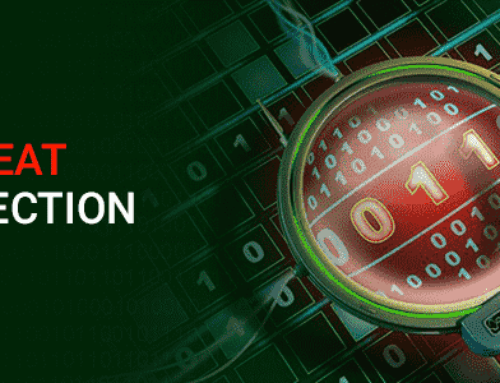
Cybersecurity for Smart Cities
Cybersecurity for Smart Cities: Preserving the Future As cities transform into smart cities, technology is being incorporated into daily life more and more. Interconnected systems improve public services, increase efficiency, and foster a more sustainable environment, as you may have observed. Nevertheless, there are serious cybersecurity issues that accompany these developments.
Key Takeaways
- Cybersecurity is crucial for the safety and functionality of smart cities, which rely on interconnected digital systems and devices.
- Securing the ICT infrastructure in smart cities involves implementing robust security measures to protect against cyber threats and attacks.
- Protecting IoT devices from cyber threats is essential for maintaining the integrity and security of smart city networks and systems.
- Leveraging AI for cybersecurity in smart cities can enhance threat detection, response, and overall security measures.
- Securing data in cloud computing for smart cities requires strong encryption, access controls, and regular security audits to prevent data breaches and unauthorized access.
Smart cities are vulnerable to numerous cyberthreats because of the very technologies that make them effective. It is essential to comprehend the significance of cybersecurity in this regard in order to guarantee the security and robustness of urban infrastructures. Numerous systems in a smart city are connected by the Internet of Things (IoT), from energy distribution to traffic control. Malicious actors may take advantage of the vulnerabilities brought about by this interconnectedness.
As a citizen or other stakeholder in a smart city, you have to understand that cybersecurity is an essential component of urban planning and development, not just an IT problem. Strong cybersecurity measures are essential to the protection of your personal information, the dependability of public services, and the general safety of the urban environment. The information & communication technology (ICT) infrastructure is the foundation of any smart city.
Data centers and communication networks are just two examples of this infrastructure, which needs to be protected from online attacks. It may surprise you to hear that early on in the planning process, a lot of smart city initiatives undervalue the significance of protecting their ICT infrastructure. Critical services may be compromised as a result of this oversight, which could leave gaps open to hacker exploitation.
In order to properly secure ICT infrastructure, you should promote a multi-layered security strategy. This entails setting up intrusion detection systems, firewalls, & conducting frequent security audits. To guard against known vulnerabilities, it is also crucial to make sure that all hardware & software components are updated on a regular basis. By giving these steps top priority, you can contribute to the development of a robust ICT framework that protects against possible cyberattacks and supports the operations of the smart city.
Particular cybersecurity issues arise from the spread of IoT devices in smart cities. Because these devices frequently gather and send sensitive data, cybercriminals find them to be appealing targets. Knowing the possible dangers of IoT devices is important if you live in a smart city or use its technologies. A large number of these devices are susceptible to hacking and unauthorized access because they lack strong security features. Strong encryption techniques and authentication protocols must be used to safeguard IoT devices against online attacks.
Also, you ought to push manufacturers to embrace security-by-design, which guarantees that gadgets are constructed with security in mind from the start. To further improve security, update device firmware frequently & keep an eye on network traffic for odd activity. Your smart city’s IoT device risks can be reduced by implementing these preventative measures.
In smart city defense against cyberattacks, artificial intelligence (AI) has become a potent weapon. AI has the potential to help detect possible weaknesses and react to threats faster than conventional techniques because of its real-time, massive data analysis capabilities. You should think about how AI can improve cybersecurity measures if you’re concerned about the future of your urban environment.
Threat detection and response procedures can be automated by AI-driven solutions, freeing up cybersecurity teams to work on more difficult problems. For example, machine learning algorithms are able to examine network traffic patterns in order to spot irregularities that might point to a cyberattack. On the basis of past data, AI can also help anticipate possible threats, allowing preventative actions to be taken before an attack takes place. You can help create a more secure smart city environment by adopting AI technologies.
Because it offers scalable resources for data processing and storage, cloud computing is essential to the functioning of smart cities. Concerns regarding data security & privacy are also brought up by this dependence on cloud services. As a participant in the ecosystem of smart cities, you should understand how crucial it is to protect data stored on cloud servers. Strong access controls and encryption techniques must be used in cloud computing environments to guarantee data security.
Depending on the type of data being handled, you should also promote frequent security audits and adherence to industry standards like GDPR or HIPAA.
Also, putting in place explicit data governance guidelines can guarantee that private data is managed correctly. You can contribute to protecting the confidentiality and integrity of data in your smart city by giving these measures top priority. Greater Risks, Greater Connectivity. Real-time device communication is made possible by 5G networks’ increased speed and capacity. But if networks are not adequately secured, this increased connectedness may also make them more vulnerable to cyberattacks. protection of 5G networks.
End-to-end encryption and secure authentication techniques are two strong security protocols created especially for 5G networks that you should support. By doing this, you can contribute to the prevention of cyberattacks & safeguard confidential data. making the environment safer. You may contribute to making your smart city a safer place for all users by making sure that 5G infrastructure is protected from possible threats.
This necessitates a proactive approach to cybersecurity that involves cooperation between individuals, private businesses, and government organizations. In order to successfully implement cybersecurity measures in smart cities, a multifaceted strategy involving government organizations, private businesses, and citizens like you is needed. Collaboration between these groups is essential to creating a culture of resilience & cybersecurity awareness.
It is recommended that a centralized cybersecurity framework be established, outlining the roles and responsibilities of all parties involved in the operations of smart cities. Residents can benefit from regular awareness campaigns and training sessions that teach them about potential cyberthreats & safe online conduct. Also, establishing alliances with cybersecurity professionals can yield insightful information about new threats & effective mitigation techniques. You can help create a smart city that is more secure by actively taking part in these initiatives.
The opportunities and challenges in cybersecurity will change as smart cities continue to develop. It may be interesting to you to learn that although technological developments bring with them new security risks, they also provide creative ways to improve security. Future cybersecurity plans will probably place more emphasis on incorporating cutting-edge technologies like blockchain and quantum computing. But there are still many difficulties. Because technology is changing so quickly, cybersecurity defenses must be updated frequently to meet new threats. Also, as smart cities become more globally interconnected, cyberattacks may have an impact that goes beyond local borders and impacts entire nations or regions.
It is crucial to stay up to date on these advancements as an involved citizen or stakeholder in the future of your smart city & to push for preventative actions that tackle present and upcoming cybersecurity issues. In conclusion, it is critical to comprehend the significance of cybersecurity in smart cities as you navigate life in an increasingly connected urban setting. You can significantly contribute to creating a safer future for your community by actively engaging in conversations about safeguarding ICT infrastructure, securing cloud data, leveraging AI technologies, protecting IoT devices, and putting best practices into practice. You can improve your personal safety and help your smart city become more resilient & sustainable overall by accepting these challenges as opportunities.
Cybersecurity for Smart Cities is crucial in today’s digital age, especially with the rise of cyber threats targeting various systems and networks.
One related article worth mentioning is the recent warning from CISA about the SonicWall SMA100 OS command injection vulnerability being exploited in the wild. This vulnerability poses a significant risk to organizations using SonicWall’s SMA100 series products, highlighting the importance of staying vigilant and implementing robust cybersecurity measures. To learn more about this critical vulnerability, you can read the article here.

What is cybersecurity for smart cities?
Cybersecurity for smart cities refers to the protection of digital systems, networks, and data within a city’s infrastructure from cyber threats and attacks. This includes safeguarding smart devices, sensors, and communication networks that are used to manage various aspects of urban life, such as transportation, energy, and public safety.
Why is cybersecurity important for smart cities?
Cybersecurity is important for smart cities because these urban environments rely heavily on interconnected digital technologies to function efficiently. Without proper cybersecurity measures in place, smart city systems are vulnerable to cyber attacks, which can disrupt essential services, compromise sensitive data, and pose risks to public safety.
What are the common cybersecurity threats to smart cities?
Common cybersecurity threats to smart cities include ransomware attacks, data breaches, malware infections, and denial-of-service (DoS) attacks. These threats can target smart city infrastructure, such as traffic management systems, public transportation networks, and smart grid technologies, leading to potential disruptions and security breaches.
How can smart cities improve cybersecurity?
Smart cities can improve cybersecurity by implementing robust security protocols and encryption measures for their digital infrastructure. This includes regular security assessments, network monitoring, and the use of advanced cybersecurity technologies to detect and mitigate potential threats. Additionally, educating city staff and residents about cybersecurity best practices can help enhance overall resilience against cyber attacks.





